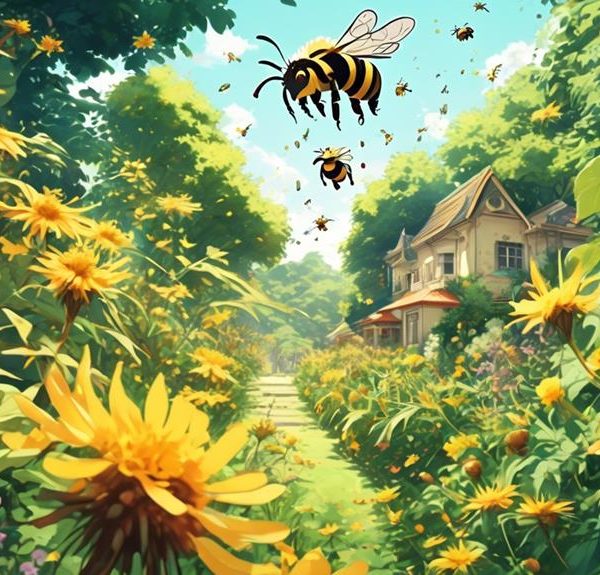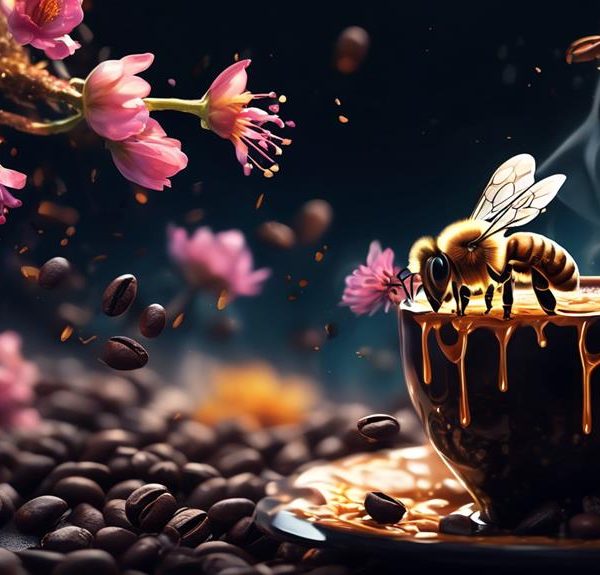Investigate the complex, controversial, yet crucial role of bees in your garden's ecosystem; are they friends or foes?
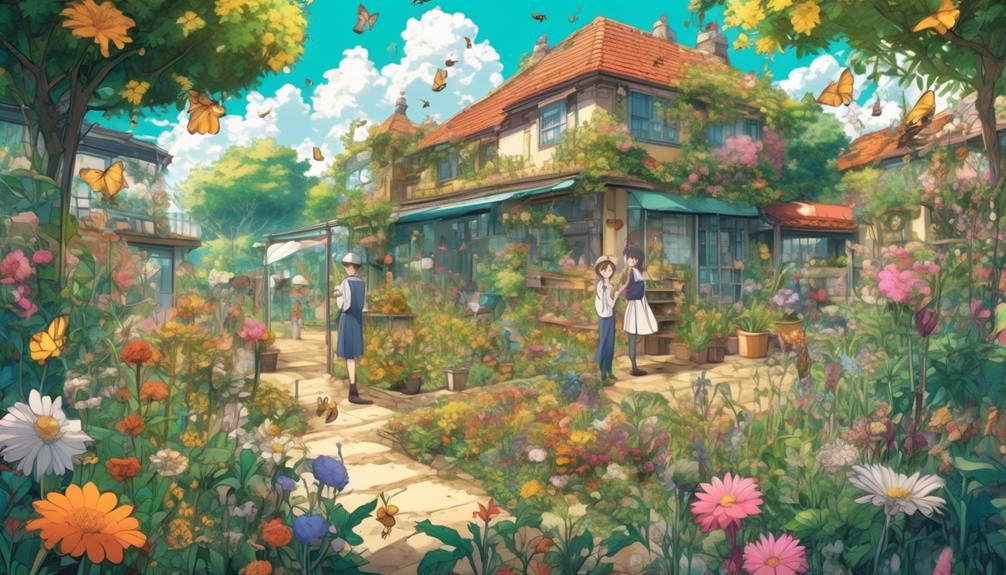
Are Bees Bad for a Garden?
'Could it be that the buzzing creatures you've been quick to shoo away are the unsung heroes of your garden?
You've likely heard the discourse about the declining bee population and their crucial role in the ecosystem, but you may not have considered their impact on your own backyard.
Let's set the stage by saying that the relationship between bees and gardens is complex, and not without its controversies. However, before you make a snap judgment, it's essential to peel back the layers of this intriguing symbiosis.
So, are bees the villains or the protagonists in the narrative of your garden's health? Stay tuned to find out.'
Key Takeaways
- Bees are essential for maintaining biodiversity and balance in the garden.
- Bees significantly boost the health and productivity of gardens through pollination.
- Bees are not naturally aggressive and are non-threatening when they gather nectar and pollen.
- Coexisting with bees in the garden involves planting bee-friendly flowers, avoiding harmful pesticides, and providing a water source for hydration.
Understanding the Role of Bees
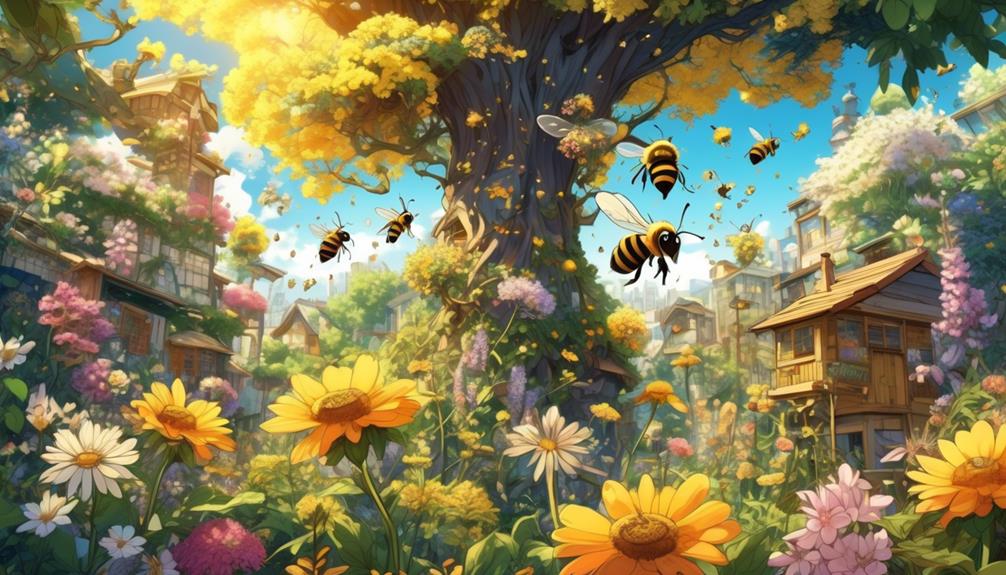
To fully appreciate the impact of bees on your garden, it's crucial to understand their roles in the ecosystem, which are multifaceted and extend beyond mere pollination. Bees are nature's little engineers, working tirelessly to foster plant reproduction. You see, when bees collect nectar, they incidentally gather pollen on their bodies, which then gets transferred from flower to flower. This cross-pollination is vital for plant diversity and growth.
But there's more to it than that. Bees also contribute to the food chain. Many birds and insects, including other beneficial ones, feed on bees, their larvae, or the sweet honey they produce. This makes bees an integral part of your garden's biodiversity, helping to maintain balance and stability.
Furthermore, bees are signifiers of environmental health. A thriving bee population in your garden is often an indicator of a healthy ecosystem. Conversely, declining bee populations can signal environmental distress, urging you to take corrective actions.
In essence, bees aren't just helpful; they're essential. So, rather than viewing them as a nuisance, consider them as a valuable ally in your gardening efforts. Their presence is a testament to your garden's vitality and resilience.
Bees and Plant Pollination
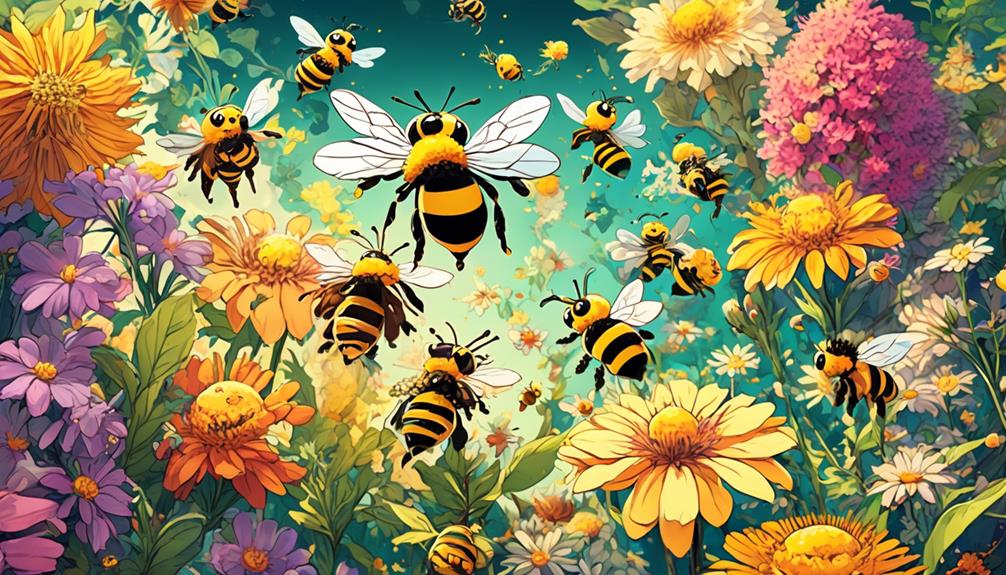
Building on the crucial role they play in maintaining balance and stability in your garden's ecosystem, let's now examine how bees specifically aid in plant pollination. When bees forage for nectar, pollen sticks to their fuzzy bodies. As they move from flower to flower, a portion of this pollen brushes off, fertilizing the plants and triggering the production of fruit and seeds.
To better understand the process, let's break it down using a table:
Stage of Pollination | Role of Bees |
|---|---|
Collection | Bees collect pollen on their bodies while searching for nectar |
Transfer | They transfer pollen from the male parts of a flower to the female parts |
Fertilization | The transferred pollen fertilizes the plant |
Production | This leads to the production of fruit and seeds |
Therefore, far from being harmful, bees are essential for a thriving garden. Their diligent pollination not only aids in fruit and seed production but also helps to maintain biodiversity. Without bees, you'd see a significant dip in your garden's productivity and overall health. It's clear that bees are not just good, but indispensable for your garden.
Common Misconceptions About Bees
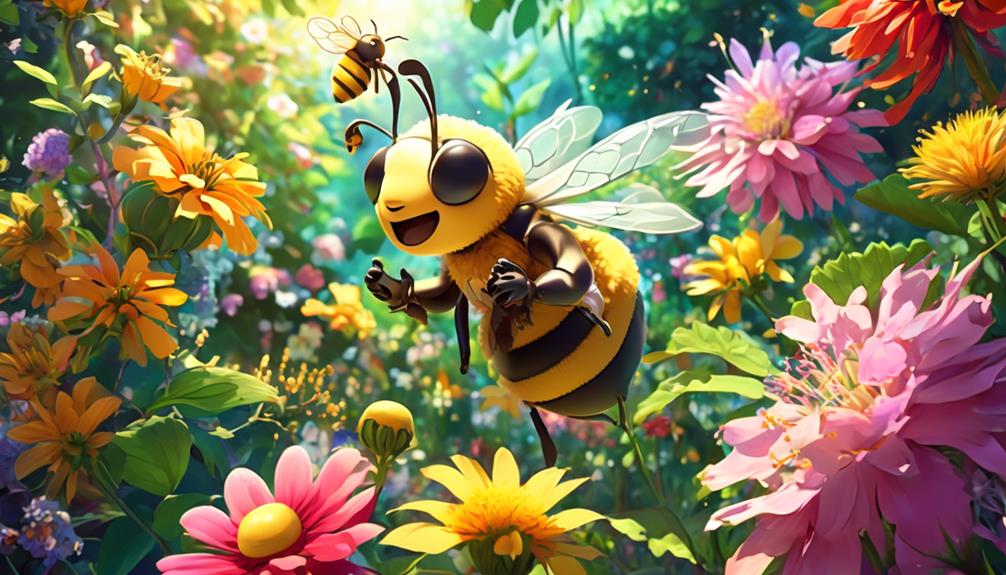
Despite their essential role in our gardens, bees often fall victim to a swarm of misconceptions, leading many to undervalue their significant contribution to our ecosystem. You might've heard that all bees are aggressive and sting unprovoked. Yet, it's essential to understand that bees aren't naturally aggressive; they usually sting when they feel threatened. Remember, when a bee stings, it dies, so stinging isn't their first choice of defense.
Another common myth is that all bees make honey. True, honeybees do, but there are thousands of bee species, and most don't produce honey. For instance, solitary bees, which make up a significant portion of the bee population, don't produce honey or beeswax.
Perhaps the most damaging misconception is that bees are pests. This idea couldn't be further from the truth. Bees are pollinators, playing a vital role in our food production. Without bees, our gardens would be less colorful and our plates less varied.
Impact of Bees on Garden Health
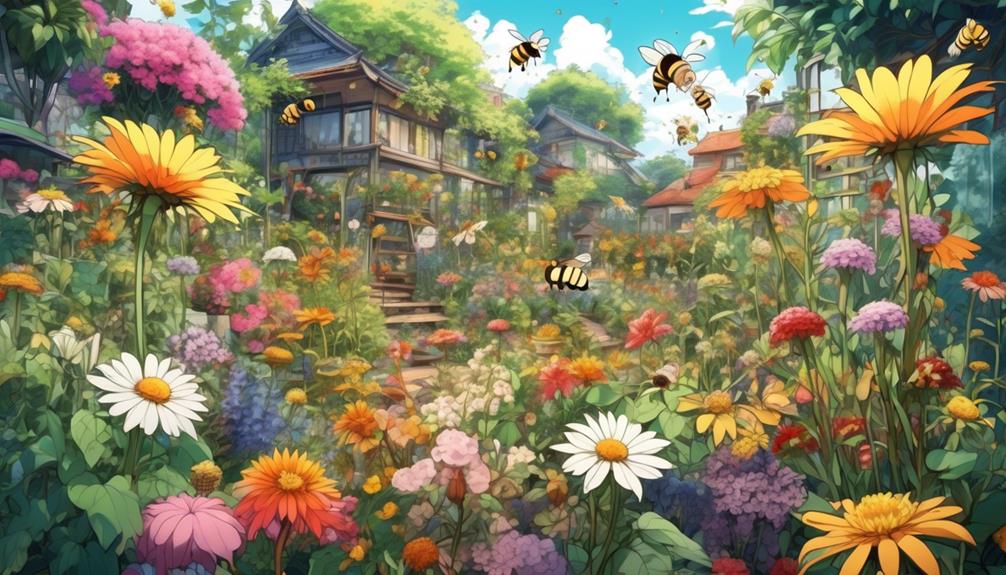
Harnessing the power of bees in your garden can significantly boost its health and productivity. Contrary to popular belief, bees aren't destructive pests, but beneficial pollinators. They play a crucial role in plant fertilization, transferring pollen from male to female plant parts. This process ensures your plants produce fruit and seeds, improving your garden's yield.
It's not just about quantity, though. Bees also enhance quality. They help to cross-pollinate, leading to a stronger and more diverse plant population. This can translate into healthier, more robust crops and flowers. Without bees, your garden may suffer from reduced pollination, leading to decreased plant diversity and productivity.
But bees don't stop at pollination. They also contribute to soil health. Certain species, like the ground-nesting bees, burrow into the ground, aerating the soil and helping to improve its structure and fertility.
It's clear that bees aren't only harmless to your garden, but they're actually essential. So, instead of seeing them as a threat, consider them your little garden helpers. Encourage their presence – your garden will thank you for it.
Co-Existing With Bees in Your Garden
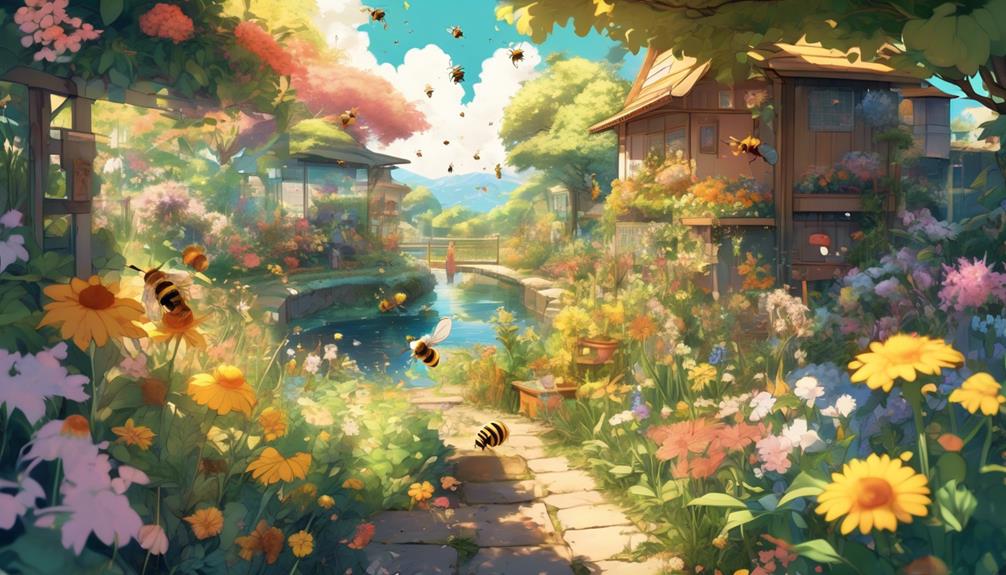
To successfully coexist with bees in your garden, it's essential to understand their behavior, needs, and the positive impact they have on your plant wildlife.
Bees are typically non-aggressive, only resorting to stinging when they feel threatened. They're primarily focused on gathering nectar and pollen to support their hive, not on causing you harm.
In fact, bees are critical for your garden's health. They're outstanding pollinators, promoting the growth of your plants by transferring pollen between flowers. Without bees, many of your garden's plants would struggle to reproduce.
You can encourage harmonious coexistence by planting bee-friendly flowers and avoiding the use of harmful pesticides. Opt for organic pest control methods instead. Provide a shallow, clean water source for the bees, as they need to hydrate just like any other creature.
If a bee hive establishes in an inconvenient location, don't attempt to remove it yourself. Contact a local beekeeper or pest control professional who can relocate the hive without harming the bees.
Frequently Asked Questions
What Are Some Natural Remedies to Prevent Bees From Swarming in My Garden?"
You're looking for natural remedies to deter bees from your garden.
A few methods could include planting lemongrass, mint, or wormwood, whose scents are unappealing to bees.
Alternatively, you can make a natural bee repellent spray using vinegar and water.
Are There Any Specific Types of Plants or Flowers That Attract More Bees?"
Absolutely, there are specific plants that attract more bees. You'll find bees buzzing more around flowers like lavender, sunflowers, and daisies. They're also drawn to herbs like rosemary and thyme.
Planting a variety of these in your garden will certainly increase bee traffic. Remember, though, bees are crucial for pollination, so attracting them isn't necessarily a bad thing for your garden's health.
How Do I Treat a Bee Sting When Gardening?"
Treating a bee sting while gardening is straightforward. First, remove the stinger by scraping it out, don't squeeze. Rinse the area with soap and cool water. Reduce swelling with a cold pack and take over-the-counter pain relievers if necessary.
An antihistamine or hydrocortisone cream can soothe itching. You should monitor the sting site for signs of infection. However, if you're allergic to bee stings, seek immediate medical attention.
Do Bees Cause Damage to the Garden Infrastructure Like Fences or Garden Furniture?"
No, bees don't cause damage to garden infrastructure like fences or garden furniture. They're primarily interested in flowers for their nectar and pollen. Bees are crucial pollinators and generally don't interact with non-floral items in your garden.
What Is the Impact of Bees on Other Insects in the Garden?"
No, bees aren't bad for your garden. In fact, they're beneficial. They pollinate your plants, ensuring they grow and produce fruit.
As for other insects, bees can actually help keep harmful pests at bay. They're known to deter pests like aphids and mites.
However, bees could potentially compete with other pollinators. But, overall, the presence of bees boosts the biodiversity in your garden, making it a healthier ecosystem.
Conclusion
In conclusion, don't let misconceptions steer you wrong; bees aren't bad for your garden. They're vital pollinators, helping plants thrive and produce. Their impact on garden health is overwhelmingly positive.
Yes, they might sting if threatened, but co-existing peacefully is entirely possible. So, let's embrace our buzzing buddies. Remember, a garden with bees is a garden that's truly alive.

